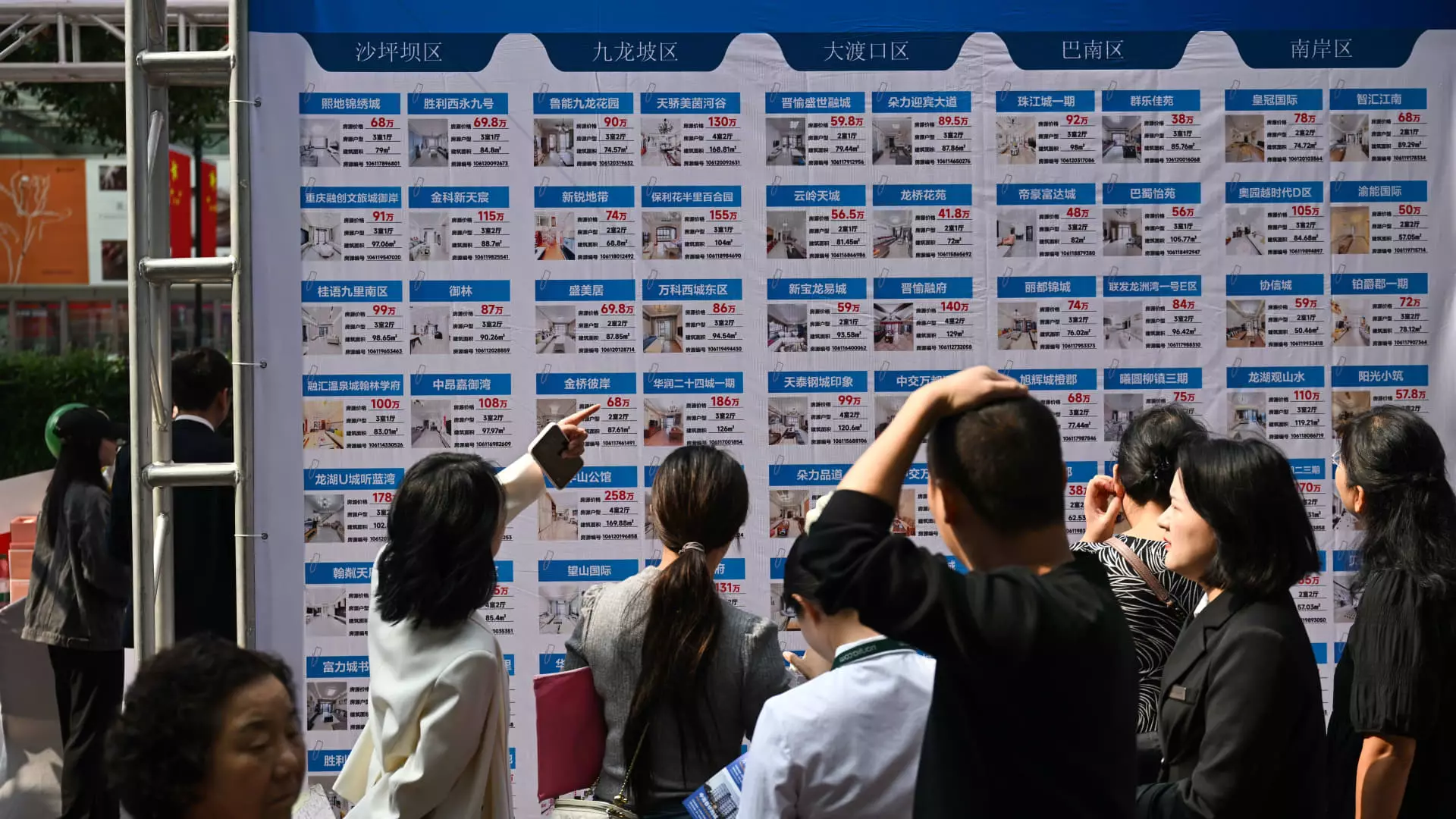China’s real estate sector has been beleaguered by a significant downturn, forcing many of its prominent property developers to navigate uncharted waters. Amid this tumultuous backdrop, analysts have begun to pivot their focus toward KE Holdings, a housing transaction and services platform that caters primarily to apartment renters across major urban centers in China. Known in the U.S. by its ticker symbol “BEKE” and in Mandarin as Beike, the company has emerged as a noteworthy player in the real estate market despite the headwinds faced by the broader sector. As of 2024, KE Holdings’ shares traded in the U.S. have shown a marked increase of 38%, a stark contrast to the muted gains observed in other Chinese property stocks over the same period.
A key element in the ongoing discourse is the recent government intervention aimed at stabilizing the real estate market. Chinese President Xi Jinping’s commitment to halting the decline of the property market suggests a calculated effort to instill consumer confidence and revive investment in residential properties. Following this top-level directive, major urban centers like Beijing have begun to relax home buying restrictions, coinciding with a traditional spike in transactions during the national holiday. Such strategic measures signify a turning tide, although skepticism persists regarding the long-term viability of this recovery.
Jefferies analysts have expressed optimism regarding KE Holdings’ capacity to benefit from government support, anticipating a boost in both existing and new home transactions. Their recommendation to buy the stock, with an eye on a price target that implies notable upside potential, reflects a cautious yet enthusiastic stance on the company’s market positioning. However, it is vital to remember that while governmental policies can stimulate short-term activity, they do not guarantee sustained recovery in an environment that is still grappling with excess inventory and changing demographic dynamics.
China’s property developers find themselves at a crossroads, grappling with the stark realities of a market that has shifted dramatically from the era of pre-sale strategies for unfinished apartments. The current landscape is characterized by a growing inventory of older properties and a demographic trend marked by an aging population, casting uncertainty over future demand dynamics. Richard Tang, a strategist at Julius Baer, remains cautious about the pace of market recovery, suggesting that while there may be signs of improvement, a sustained rebound appears to be a distant prospect.
This evolving landscape challenges firms like KE Holdings to adapt their strategies beyond traditional brokerage services. The company has started to explore diverse revenue streams, seizing opportunities in home renovations and rentals while connecting consumers with contractors. Such strategic pivots are essential for navigating the complexities of a market in flux, where investor sentiment and buyer expectations remain uncertain.
Investment analysts continue to scrutinize KE Holdings within the broader context of China’s property market. Bank of America Securities recently suggested that further price declines are likely, predicting a potential 10% dip in property values. This notion reflects a general tension in the market where transaction volumes may reflect temporary spikes, but underlying economic realities could inhibit lasting growth. Importantly, the same report acknowledged KE Holdings’ significant market share within existing and new home brokerage channels, highlighting its competitive positioning, despite the prevailing caution among investors.
Moreover, Goldman Sachs analyzed the potential inclusion of KE Holdings in the Stock Connect program for investors in mainland China, indicating that such developments could provide a crucial catalyst for the stock’s performance. Their assessment underscores the interconnected nature of market opportunities, which, combined with government-supported recovery measures, creates a complex web of potential outcomes for KE and its stakeholders.
KE Holdings represents a beacon of resilience in a challenging real estate landscape. The interplay of government stimulus, evolving consumer needs, and strategic adaptations position the company uniquely amidst uncertainty. While analysts differ on the trajectory of China’s property market and the implications for KE Holdings, the company’s proactive response to market conditions could ultimately bear fruit. For investors, the risk-reward equation remains delicately balanced, with the significant potential for growth tempered by the realities of a sector still navigating the repercussions of systemic challenges. Thus, as we approach the latter part of 2024, KE Holdings will be an intriguing case study in adaptability and evolution in the face of adversity within the tumultuous realm of China’s real estate market.

